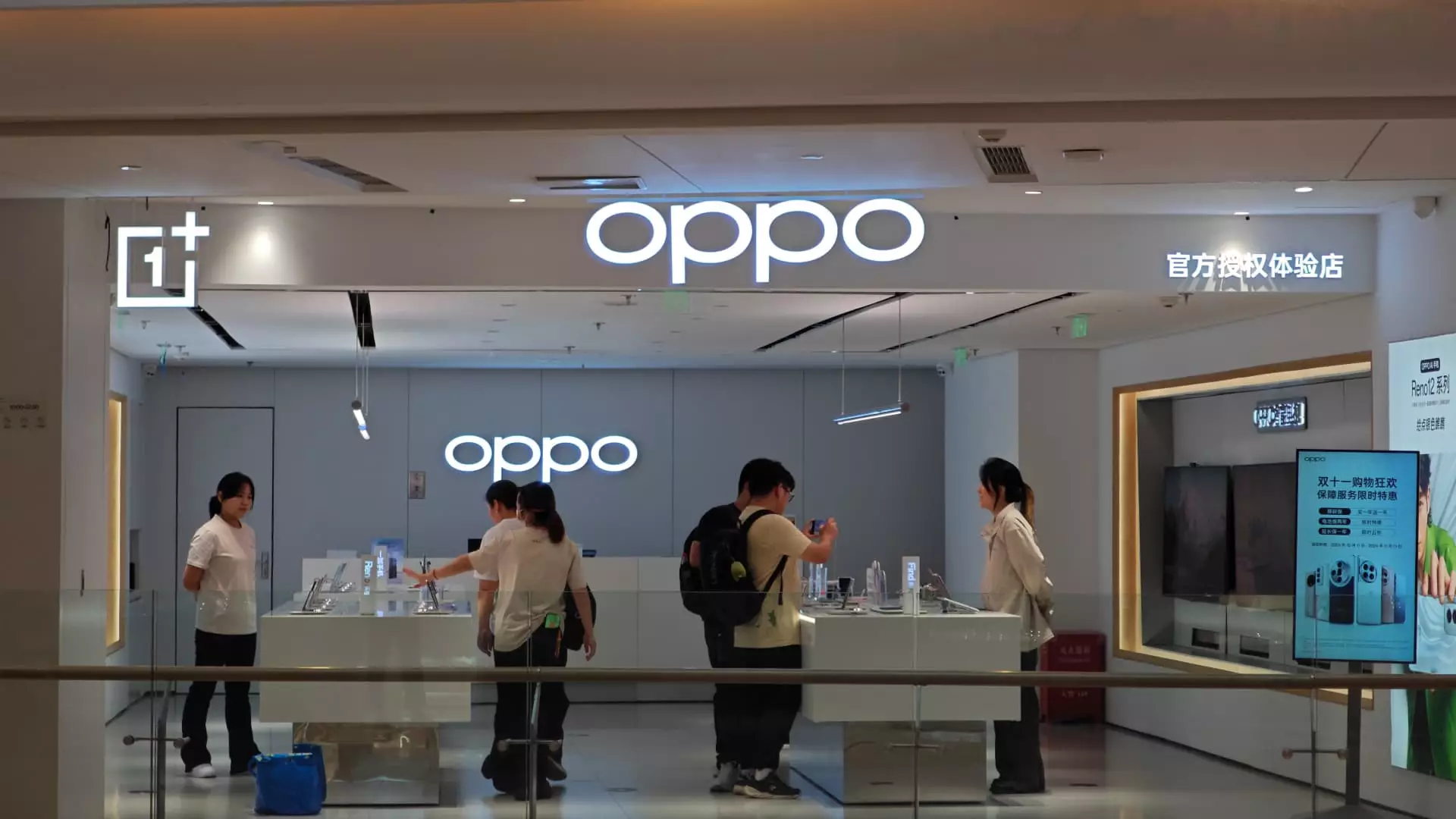As technology advances at an unprecedented pace, concerns surrounding data privacy have escalated dramatically. In recent developments, Oppo, a prominent Chinese smartphone manufacturer, has announced the launch of an innovative cloud computing initiative aimed at safeguarding consumers’ private information. The company’s ambitious move is strikingly reminiscent of Apple’s strategies, particularly with the rollout of their privacy-centric artificial intelligence services. This article delves into Oppo’s new Private Computing Cloud and examines its implications for user privacy and the smartphone market.
Oppo’s announcement regarding its Private Computing Cloud comes at a time when user data privacy is increasingly paramount. This initiative reflects a strategic partnership with Google, which will leverage the tech giant’s Confidential Computing software. By employing advanced encryption techniques, Oppo’s new service aims to prevent third-party access to sensitive user data, including private communications and browsing histories. This proactive approach is crucial in a climate where consumer trust and data privacy are inextricably linked to brand loyalty.
This focus on privacy makes Oppo’s move particularly noteworthy considering the broader context of AI advancements. Consumers have grown wary of how large tech firms utilize personal data for training AI models and enhancing functionality. By ensuring that user data remains secure and insulated from Oppo’s AI, this initiative may reshape how consumers perceive the interplay between convenience and privacy.
Oppo’s strategy offers an interesting comparison to similar initiatives from industry leaders, particularly Apple. Last year, Apple introduced its Private Cloud Compute (PCC) system as part of its broader commitment to user privacy. PCC serves as a dedicated cloud intelligence framework that emphasizes safeguarding personal data. Similarly, Oppo’s Private Computing Cloud is designed to maintain a clear demarcation between user privacy and AI processing, further enhancing its appeal in a saturated smartphone marketplace.
Industry analysts, such as Ben Wood from CCS Insight, have noted that the rising concerns around AI and data privacy among device manufacturers create fertile ground for innovations like those being pursued by Oppo. These moves are not merely reactive but represent a strategic effort to carve out a competitive edge in the evolving AI-powered landscape, especially among Chinese brands that need to reassure consumers wary of data misuse.
Beyond addressing privacy concerns, Oppo’s Private Computing Cloud will integrate advanced AI functionalities that are positioned to transform user experiences. Key features set to launch include call summarization, recording capabilities, and enhanced search and image generation functions. This represents a significant leap in Oppo’s AI offerings, reflecting the company’s intent to synchronize cutting-edge technology with privacy measures.
Moreover, Oppo is integrating Google’s Gemini foundation models into various applications, including Notes and Calendar. This addition signifies a commitment to enriching user interaction with smart features while promising not to compromise personal data in the process. The company has ambitious plans to extend its AI-enhanced services to 100 million users by the end of 2025, doubling its previous target, showcasing substantial confidence in both the technology and market adoption.
Oppo’s venture into privacy-focused AI signifies broader implications for the mobile technology market. As companies increasingly emphasize ethical data usage, businesses that prioritize user security may garner a competitive advantage. Additionally, the collaboration with Google highlights the significance of alliances in the tech industry to foster innovation while adhering to evolving regulatory frameworks regarding data privacy.
The landscape of consumer technology is rapidly evolving, and companies that adapt to these shifts will ultimately flourish. For many consumers, data privacy will drive purchasing decisions as they seek devices that empower them with both advanced features and the assurance that their personal information is securely managed.
Oppo’s innovative approach signifies a pivotal moment in the intersection of AI and privacy within the smartphone sector. As consumers continue to navigate the complexities of digital privacy, initiatives like the Private Computing Cloud stand as beacons of reassurance amidst a growing tide of concerns. By aligning cutting-edge technology with stringent privacy measures, Oppo not only enhances its service offering but also positions itself as a leader in a new wave of consumer-centric technology. As we look to the future, the emphasis on privacy in AI development may well shape the next era of digital communication and interaction, redefining the relationship between technology and its users.

